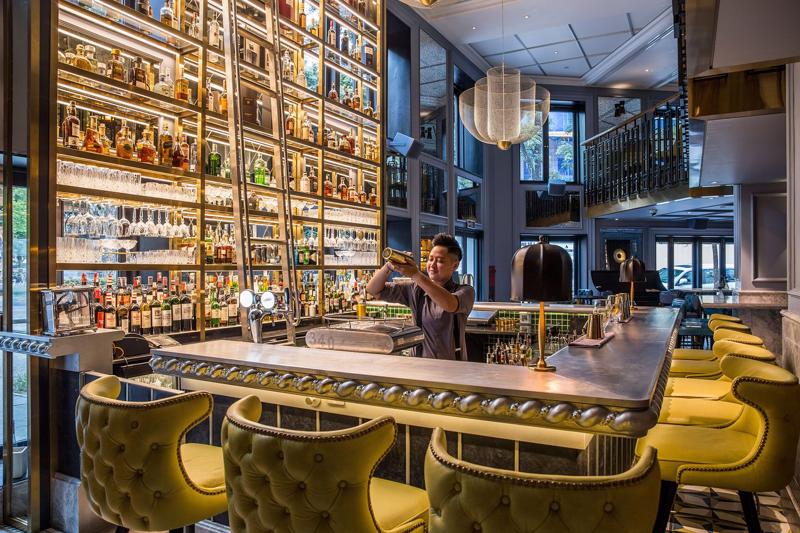A major new trend driving sales and the recovery of Vietnam’s hospitality sector is the “Premiumization” of the customer experience, the International Wine and Spirits in ASEAN report, recently released by global economic forecasting specialist Oxford Economics, revealed.
“Premiumization”, the report notes, describes the broad trend of consumers “trading up” in their consumption choices and purchasing more premium products. This trend is demonstrated in data that shows the average price per liter of alcohol consumed globally has risen since before the pandemic. From 2019 to 2021, the value of global wine sales increased 5 per cent, while volumes shrank 2 per cent. The value of global spirits sales increased 15 per cent, compared to volume growth of only 3 per cent.
According to Mr. Liam Cordingley, the report’s author, wine and spirits are an important element of tourism and hospitality services. During the Covid-19 pandemic, sales of premium wines and spirits in Vietnam remained stable, while sales of affordable brands saw a decline. This indirectly shows that tourists are increasingly interested in high-end products and want to have a luxurious and classy experience in their journey.
In Vietnam, 55 per cent of all wine and spirits sales value in 2021 came from products in the “premium-and-above” price bands (i.e., over VND549,000, or $23, per 70cl bottle of spirits and over VND400,000, or $16.80, per 75cl bottle of wine). This is a significant uplift from its position in 2017, when “premium-and-above” products accounted for only 46 per cent of sales value. Imported products account for almost the entire market, but in recent years a small segment of premium Vietnamese gin has begun to gain a minor market share. This demonstrates how the “Premiumization” trend is not exclusive to imported products but can also be a revenue generating opportunity for domestic producers looking to capitalize on these trends. Sales of premium-and-above international wines and spirits (IWS) are expected to grow around Vietnam in the years ahead, due to a combination of the recovery of tourism and hospitality and the rising spending power among domestic consumers.
IWS producers are clearly serving local demand for premium consumption, but they are also playing a role in facilitating the broader local economic impact that “Premiumization” brings, the report noted. Premium wines and spirits form part of a menu of premium goods and services that are increasingly demanded by resident consumers and international tourists. If these demands can be catered for, sales of IWS and other premium products can unlock spending across a wider range of activities, which leads to local economic benefits, including new local business opportunities and high value jobs, and higher profit margins and tax receipts in the hospitality and retail industry.
Looking forward, tourism and its recovery will play a very important role in Vietnam’s economic prosperity in the years to come. Forecasts by Tourism Economics, a specialist subsidiary of Oxford Economics, suggest that travel and tourism spending by 2025 will be 36 per cent higher than in 2019 in Vietnam. A recent American Express Global Travel Trends Report suggested international tourists are likely to spend more on travel in the immediate post-Covid-19 years than they did previously, after being denied the option of overseas trips for so long.
As painful as it was, the pandemic has inadvertently served as an opportunity for Southeast Asian governments to take stock and recalibrate their economic strategies, according to the report. Policymakers in Vietnam are positioning themselves to attract higher-spending visitors, who will contribute more to the local economy per visit than the traditional mass-tourism crowd. In particular, the Vietnamese Government is increasingly looking to promote “high quality tourism” with a focus on high added value services such as five-star hotels and food and beverage and retail outlets, to attract a greater share of long-haul, high-spending tourists from Europe, the US, and Australia.









 Google translate
Google translate